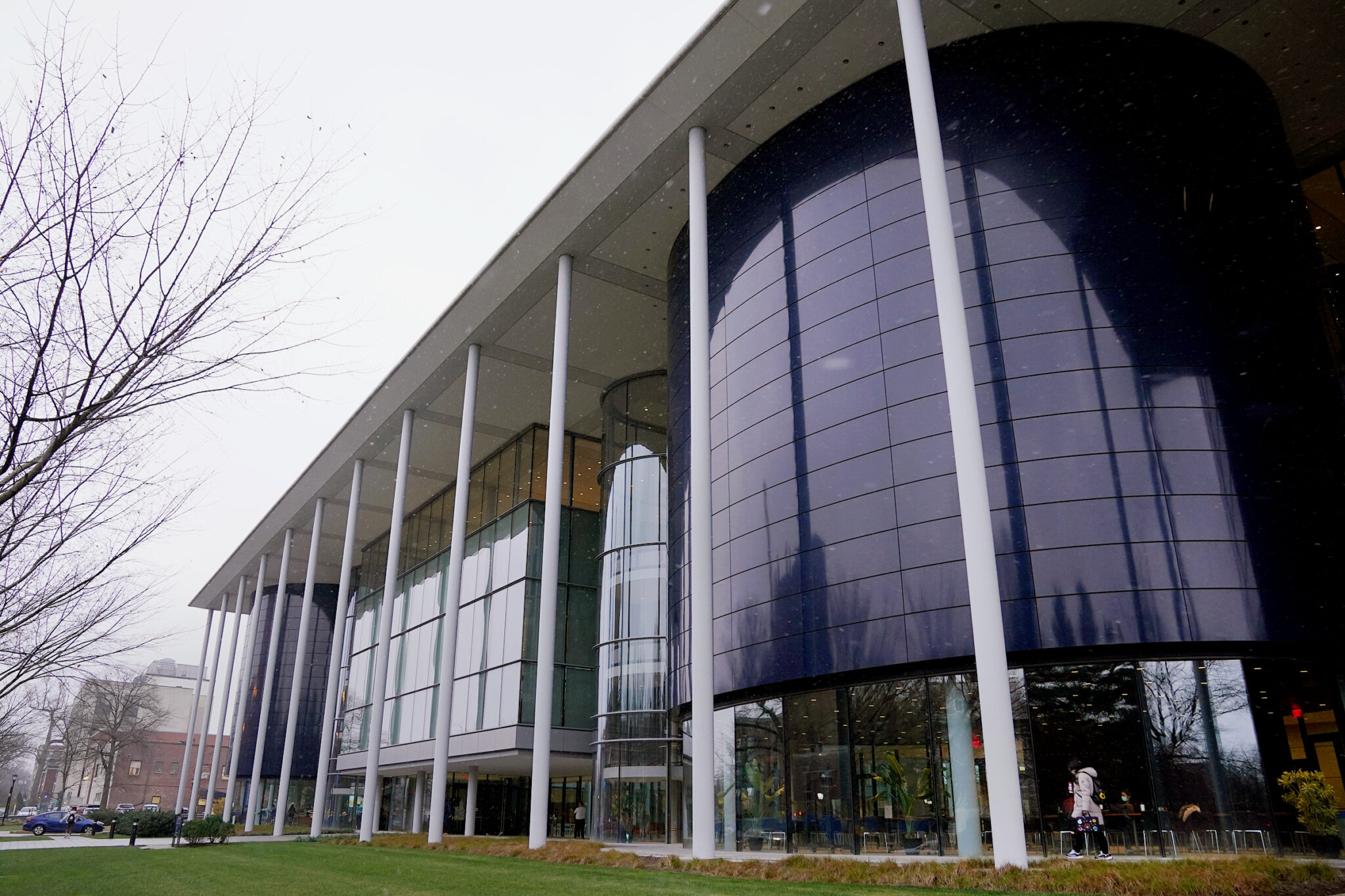New course at SOM teaches Fundamentals of Artificial Intelligence Models
The course, introduced this fall, gives students a chance to build their own projects using artificial intelligence.

Tim Tai, Senior Photographer
A new course at the School of Management is preparing students to lead the burgeoning field of artificial intelligence.
“We are living through a very profound change in the manner in which computers reason and communicate with us,” Kyle Jensen, a professor of the class and the SOM’s director of entrepreneurial programs, told the News. “It’s likely that this change will have widespread implications in society.”
Titled “Large Language Models: Theory and Application,” the new seminar teaches students the fundamentals of LLMs, which are machine learning models trained with large data sets to perform various tasks. It was first taught in the fall semester and is open to all Yale students — including undergraduates and those from different schools at Yale.
The curriculum is divided between two professors, with Jensen teaching the theory behind LLM technology and K. Sudhir, professor of private enterprise, management and marketing, teaching about the application of LLMs.
“I like endowing students with an understanding of how models like ChatGPT work,” Jensen said. “There is something deeply satisfying about understanding this transformation.”
He also explained the importance of knowing how to build products that incorporate LLMs and AI in students’ working lives, noting its increased use across various professions.
Sudhir added that the applications of LLMs are widespread.
“I want people to not only understand what the technology is, but actually be able to engage with it, use it and understand how the key ingredients work, so that they can mix and match them into applications that they can visualize,” Sudhir told the News.
Second-year master’s candidate Krupa Kadiwala GRD ’24 took the class last semester. She wrote to the News that she enjoyed learning deep technical knowledge while also gaining an understanding of the current limitations of AI.
Christina Liu GRD ’24, another student who enrolled in the class, expressed similar opinions.
“I appreciate [that] the course drills down the architecture of generative AI systems, covering not only their capabilities but also current limitations,” she wrote. “[The class] reshaped my mindset to approach the ongoing heated discussion around AI business solutions and relevant stocks.”
Other students appreciated the course’s final project, in which they developed their own models by applying AI to their unique interests.
Second-year master’s student Adam Mansell GRD ’24 explained that he enrolled in the course to understand how to use AI to enhance user engagement in the entertainment industry.
He explained that the final project broadened his perspective on integrating AI into business applications, especially product development and marketing.
“I signed up for this course because I’d like to get my hands dirty on some of the latest technologies in LLM,” Haoran Wang SOM ’24 wrote to the News, referring to a language model integration framework called LangChain as an example. “Prior to SOM, I had 5 years of professional experience in AI, but I have been away from hands-on coding for nearly two years. This course provides an ideal opportunity for me to refresh my memories and stay updated on recent advancements in the field.”
Per Forbes, AI’s market size is expected to reach $407 billion by 2027.







